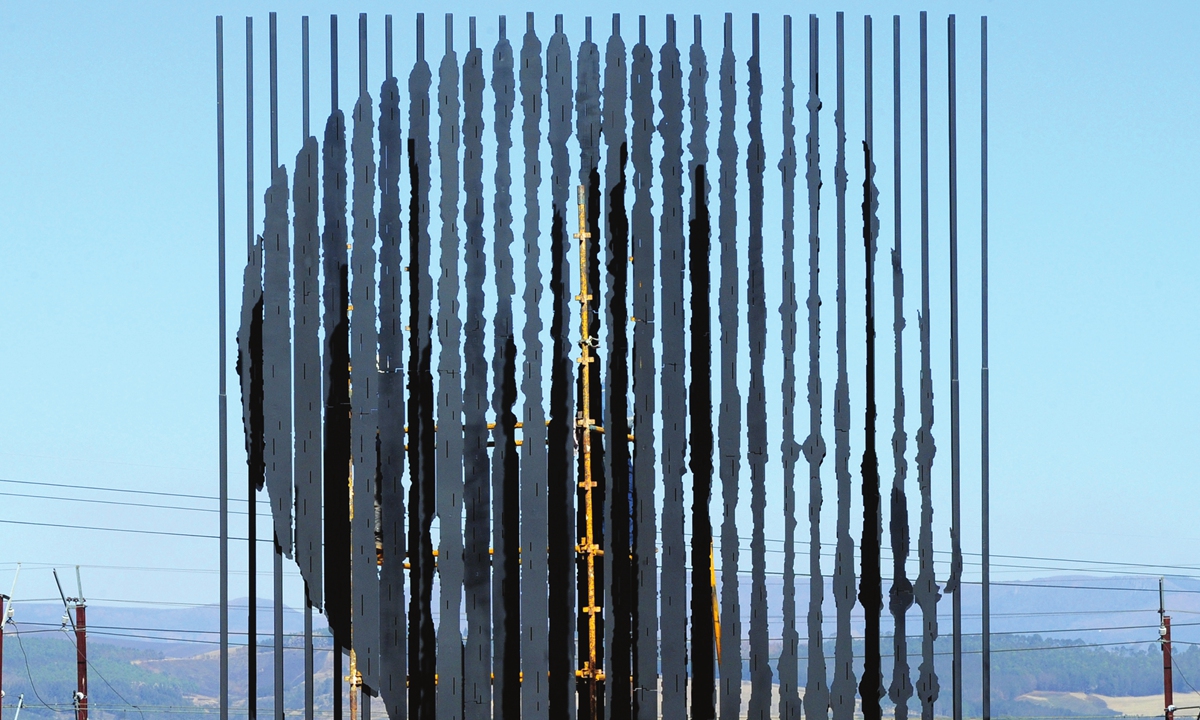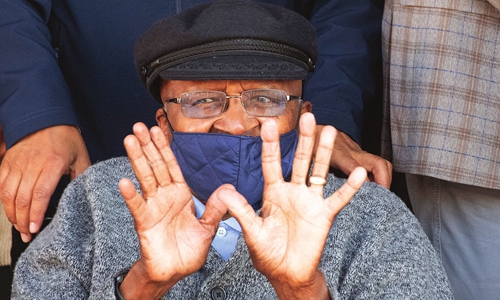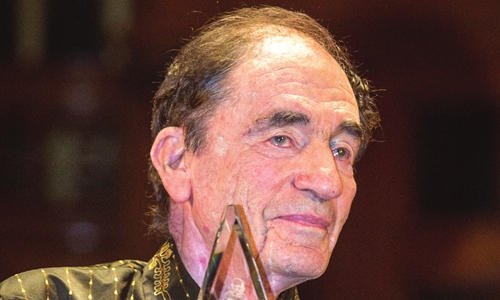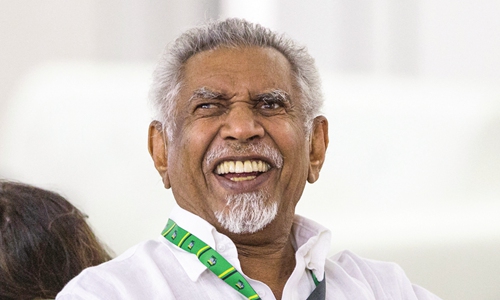
A sculpture of Nelson Mandela in South Africa in July 2021 Photos: VCG

Desmond Tutu Photo: AFP

Albie Sachs Photo: AFP

Mac Maharaj Photos: AFP
Thirty years ago, a new dawn rose in South Africa after the last legal vestiges of apartheid were scrapped following a decades-long struggle. Today, just a handful of the leaders who led that fight are still around to bear witness. Here are portraits of the most notable survivors:
Desmond Tutu, 89
Famed as much for his fearless honesty and dazzling smile as for the Nobel Peace Prize that he won in 1984, Tutu drew international attention to apartheid when he became the spokesman of the South African Council of Churches.
He campaigned against white minority rule in the firm belief in the reconciliation of all South Africans, coining the term Rainbow Nation for the reborn country.
Tutu remained outspoken after the fall of the racist regime. He has never shied away from criticizing post-apartheid South Africa's shortcomings, injustices, and corruption.
Michael Kitso Dingake, 93
Botswana-born Dingake became an avid activist for the African National Congress (ANC) after moving to South Africa in the early 1940s for schooling.
In 1965, he was arrested in Rhodesia (now Zimbabwe) and jailed for 15 years on Robben Island for sabotage.
He says he was driven to join the struggle in South Africa because of the way "blacks were treated. There was segregation everywhere. I decided this had to come to an end, I had to play my part."
Although legal discrimination has gone, "racial attitudes haven't quite changed - there are still white people who regard blacks as inferior," Dingake told AFP.
He has authored several books about his fight against apartheid.
Mac Maharaj, 86
An anti-apartheid activist of Indian origin, Maharaj was a key lieutenant to Nelson Mandela.
Arrested in June 1964, he was charged with five others on 177 counts of sabotage in a case that became known as the Mini Rivonia Trial. He was jailed for 12 years on the notorious Robben Island.
On his release, Maharaj smuggled out Mandela's autobiography.
After Mandela was elected South Africa's first post-apartheid president in 1994, Maharaj was appointed transport minister and later became the presidential spokesman for Jacob Zuma.
In a 20-page foreword to Maharaj's biography, Mandela described him as "a longtime friend and confidant" who "put the struggle for the freedom of South Africa above everything in his life."
Sophia Williams-de Bruyn, 83
Sophia Williams-de Bruyn is the sole surviving leader of a landmark August 9, 1956 women's march to the seat of government in Pretoria to protest against the so-called passed laws - legislation that barred blacks from white areas.
She remains active in the ANC Women's League, where she campaigns against the many obstacles still facing South African women.
"We are now concerned about equity targets in elections, about women's right to not always deputise to male leaders, about those factors that still make it harder for women to hold office than it is for men," she said in her August 9, 2020 speech.
Albie Sachs, 86
Sachs began practicing law at age 21, often defending people charged under the apartheid regime.
He was arrested and subjected to torture as a result.
In 1966, he went into exile to England. Eleven years later, he moved to Mozambique to help build a legal system for the newly-independent country.
There, he was wounded in 1988 in a car bomb, losing an arm and sight in one eye.
Sachs returned to South Africa in 1990 when the ANC was unbanned and Mandela was releazed from prison.
When Mandela was elected as president in 1994, Sachs was appointed to the Constitutional Court, where he served until 2009.
He assisted in authoring many of the court's landmark decisions, including the legalization of the same-sex marriage.
Ebrahim Ismail Ebrahim, 83
Ebrahim joined the struggle as an ANC youth activist in 1952 and became a member of the movement's armed wing.
He was arrested in 1963 for sabotage and tried with 18 others in the Pietermaritzburg Sabotage Trial.
He was sentenced to 15 years, released in 1979, re-arrested in 1989 and tortured, put on trial for a second time and sentenced to 20 years in 1989. He was freed in 1991.
His main current concern is the state of the economy, but is confident that under President Cyril Ramaphosa, the country is in good hands.
"He continues to take steps to root out maladminstration and corruption. We will recover," he told AFP.
